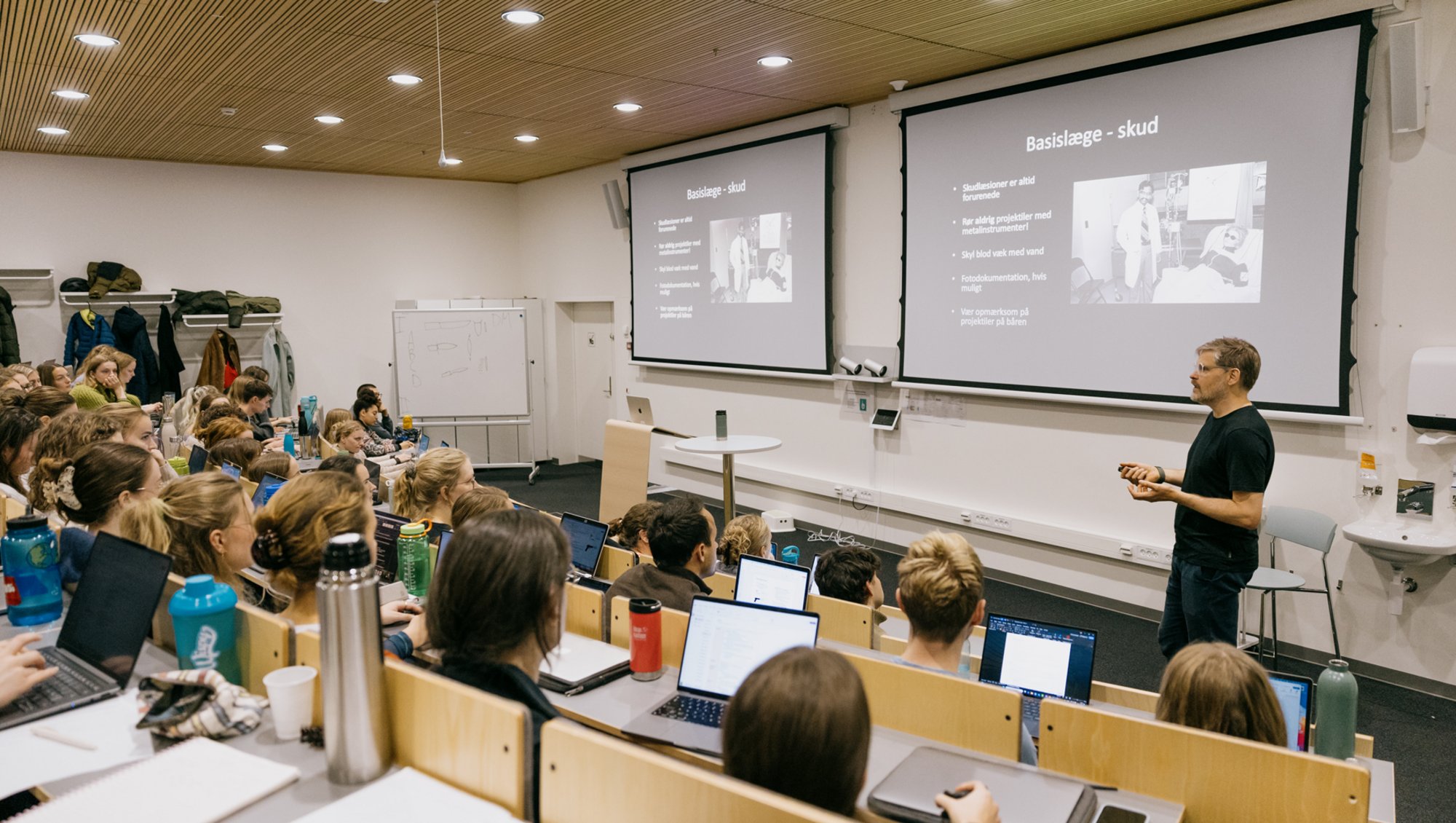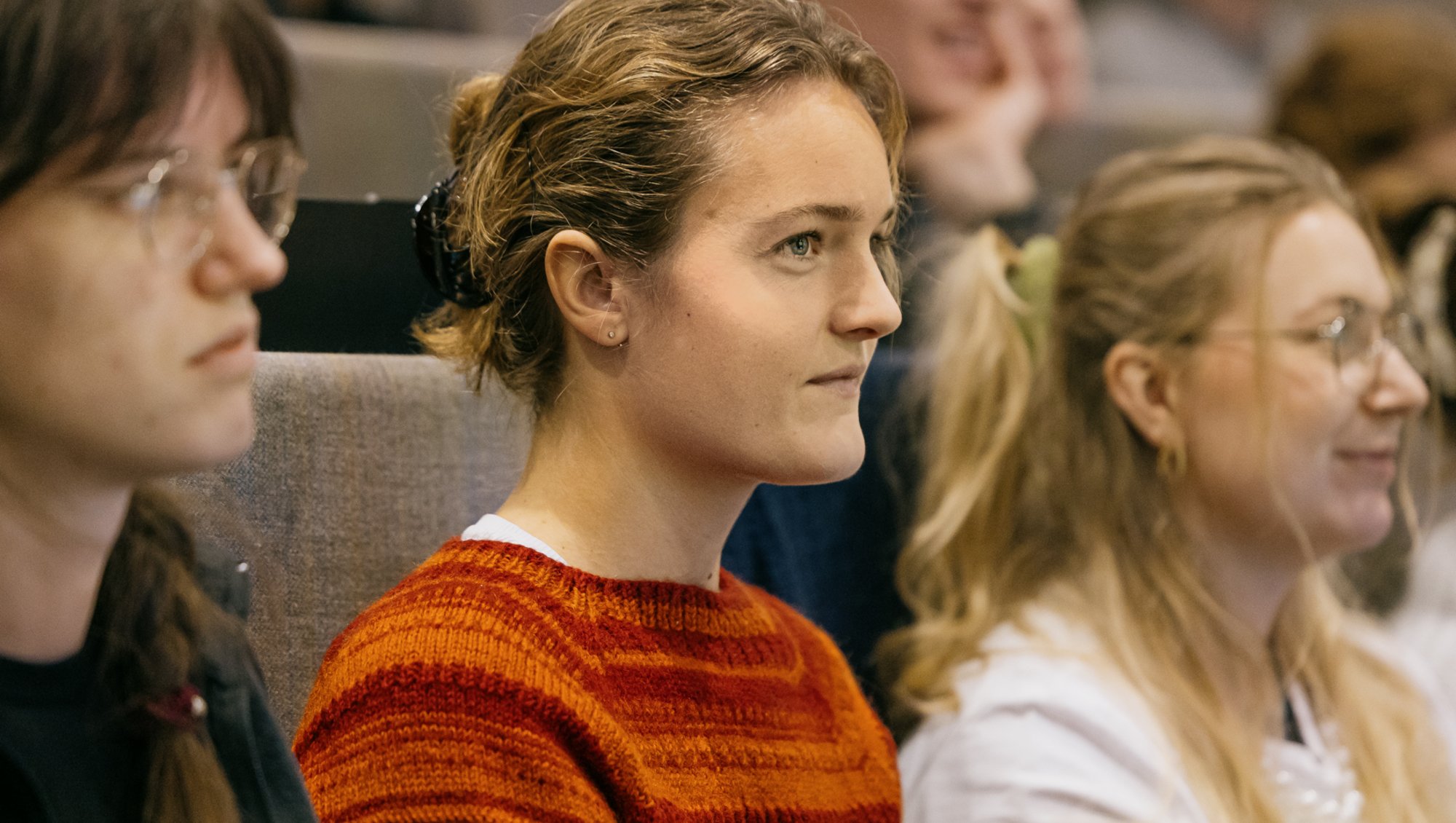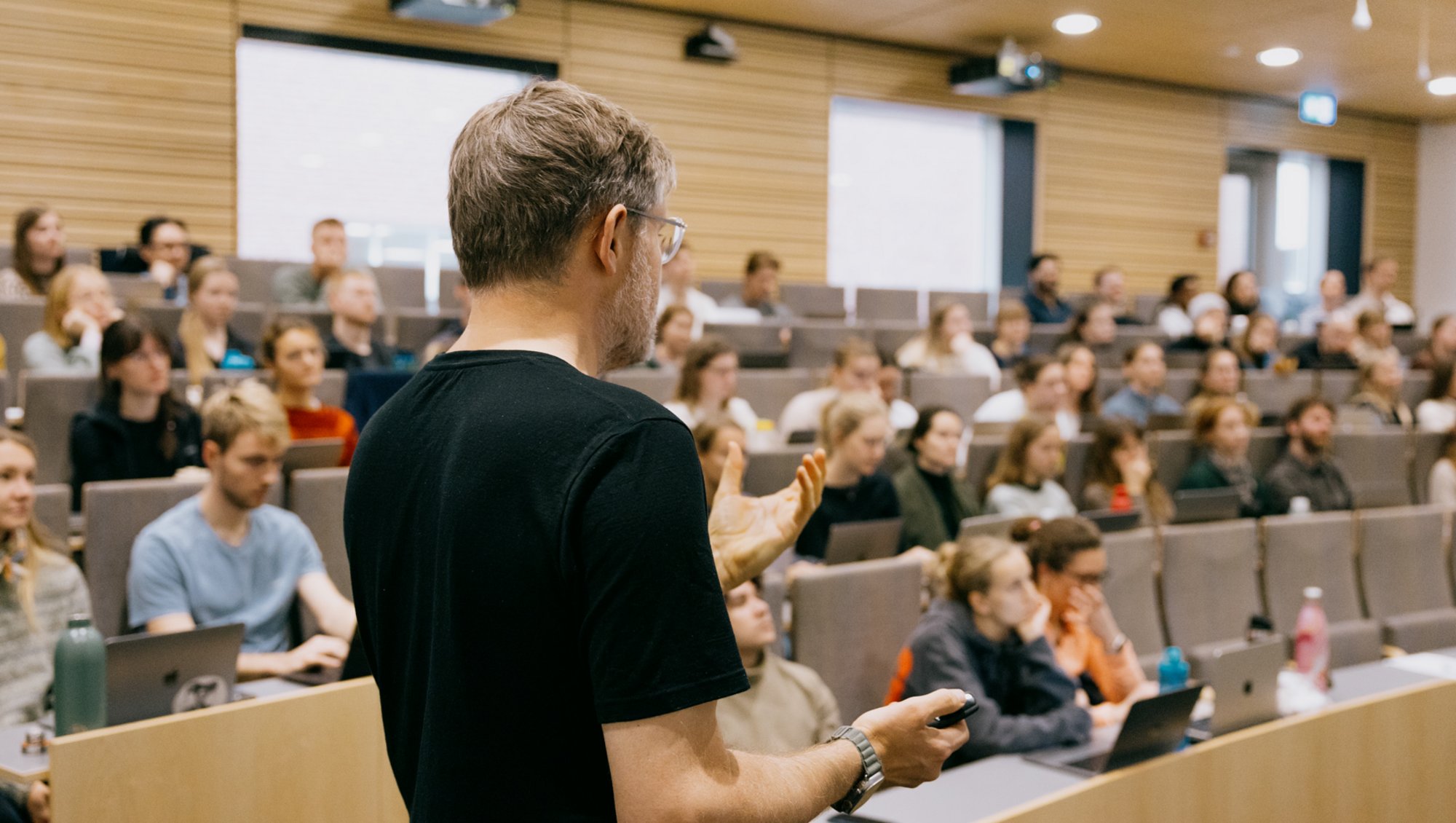Teaching at Forensic Medicine
Highly specialised training of dedicated medical students combined with basic courses for police officers, lawyers, forensic scientists and others involved in the forensic field.
We expect all academic staff to teach
Depending on the type of employment (PhD, postdocs, professor, etc.), there may be different requirements for the extent of teaching, but in general, we expect all academic staff to teach.
3 things that characterise teaching at Forensic Medicine:
Highly motivated students
Becoming a forensic pathologist requires a Master's degree in medicine, which means that students are mature and very interested in specialising in the forensic field.
Dedicated teaching colleagues
The teachers are passionate experts, committed to their field and nurturing the next generation of forensic scientists and public authority officials.
Education that contributes directly to society
A large part of the teaching is in the form of courses and training for police officers, lawyers, forensic scientists, healthcare professionals and others involved in the forensic field.
How teaching and research interact
Exposure to fresh perspectives
Interacting with students exposes you to diverse viewpoints and novel ideas. Questions and insights from the students will probably challenge your assumptions and introduce new angles to your research. And maybe you can even benefit from inviting some of the students into your research?
Feedback loop benefits your research
Teaching allows you to present your research in a simplified and structured manner. This process can help you identify gaps, refine your arguments, and enhance the overall clarity of your work through continuous feedback from students.
Research assistance from talented students
Engaging students in your research projects can provide valuable assistance. Talented and motivated students can contribute to data collection, literature reviews, and even co-authoring papers, increasing the productivity and scope of your research.
Skill development via teaching
Teaching hones your communication and organisational skills. Explaining complex concepts in an understandable way improves your ability to articulate your research findings to both academic and non-academic audiences.
Networking and strong collaborations
Establishing strong relationships with students can lead to long-term professional connections. Some students may become future colleagues, collaborators, or even experts in your field, expanding your academic and professional network.




